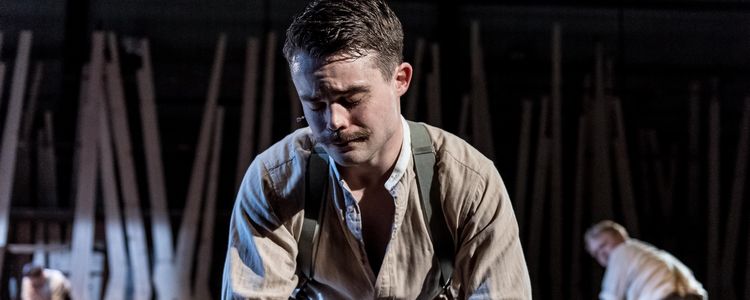Remembering the war
Oliver Emanuel’s The 306 Trilogy (Dawn, Day, and Dusk) sought to question the national conversation about memory and inherited notions of ‘heroism’ and ‘cowardice’.

Oliver’s story focussed firstly on the 306 men who were executed by the British Army for military crimes – cowardice, desertion, mutiny; the origins of the Women’s Peace Crusade; and finally how their pardon in 2006 casts light on changing contemporary values. It is not only how we remember that is important but what we remember. The context for this is a widely publicised four-year commemoration of the First World War – 14-18 NOW – which has been funded by the UK government and has broadly focussed on acts of heroism, images of patriotism and ‘glorious sacrifice’.
Taken as a whole, The 306 Trilogy was an attempt to interrupt these traditional narratives with lesser-known stories, using first-hand accounts and verbatim texts along with original writing to tell the stories of real-life individuals who were victims of the system as much as the war itself.
Oliver’s plays often engage with challenging contemporary issues, his adaptation of Caroline Brothers Hinterland about the migrant crisis (retitled Flight) premiered at the Edinburgh International Festival in 2017 before transferring to the McKittrick Hotel, New York, 2018, where it was a New York Times’ Critic’s Pick. His radio drama The Truth About Hawaii about antimicrobial resistance won an award at the International Society of Neglected Tropical Disease Festival 2018, as well as Best Series at the BBC Audio Drama Awards 2019.
Read more about Oliver's inspiration in the University's alumni magazine, Chronicle, article Chronicle article "Playwrights in the spotlight" (PDF)